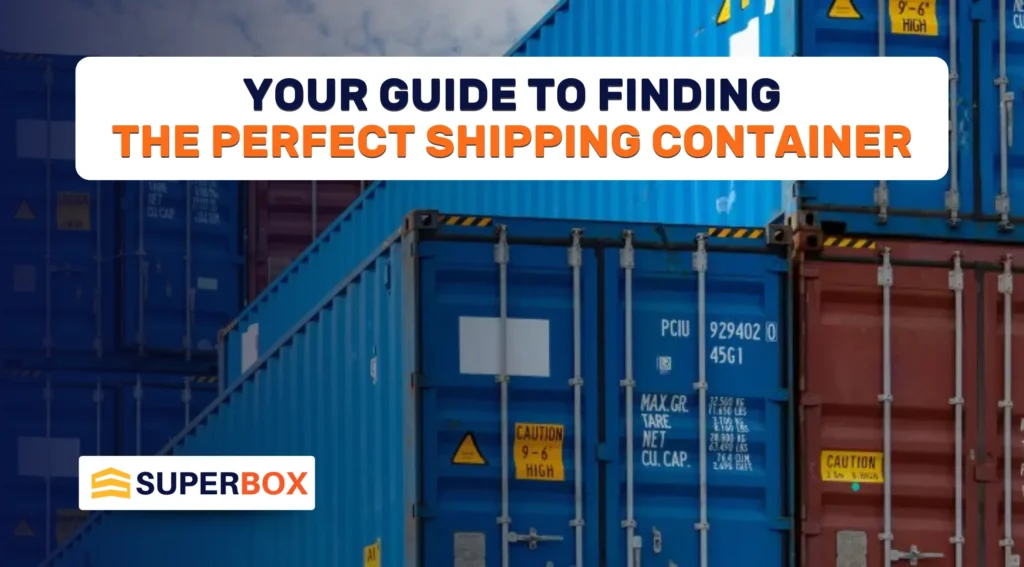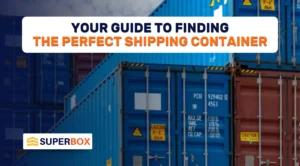Shipping containers have gained popularity for various uses, including storage, international shipping, and even creative housing solutions like container homes. However, choosing the right shipping container can take time and effort. This guide will break down the key factors you must consider when selecting a container that meets your needs.
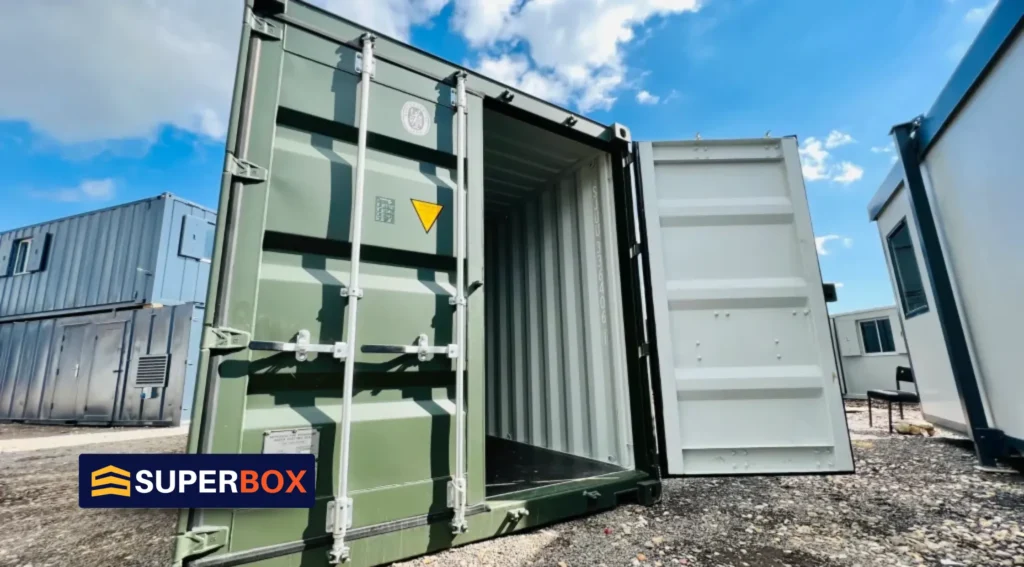
Understanding Your Needs: Size, Type, conditions, and Grades of Container
When choosing a shipping container, the first step is to clearly understand your specific needs. This involves evaluating the size, type, and grade of the container that will best suit your intended purpose. Let’s break this down into manageable sections.
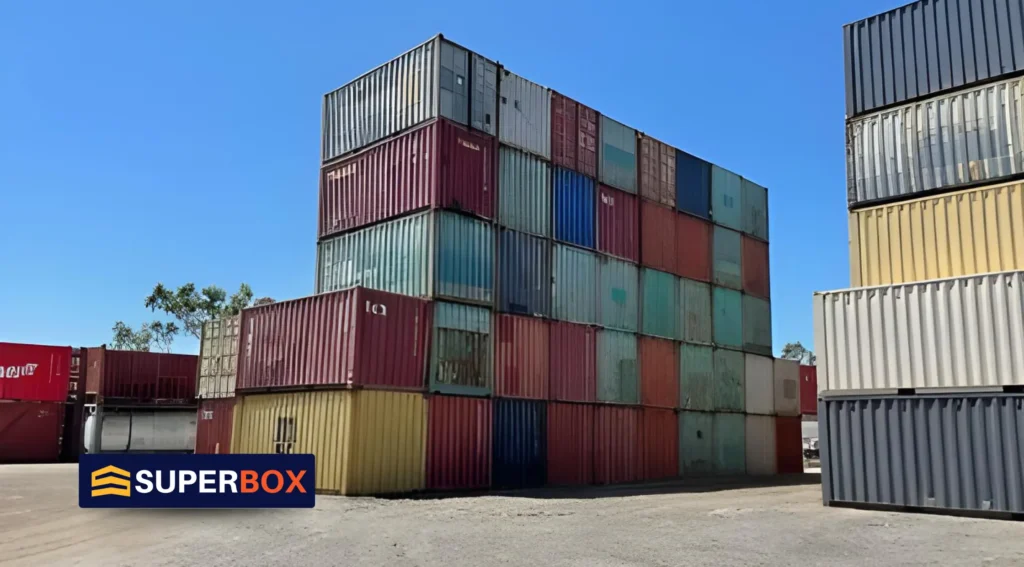
Common Size of the Container
Shipping containers come in various sizes, but the most common options are 20 feet and 40 feet long. Here’s how to determine what size is best for you:
20-Foot Containers: Ideal for smaller projects, these containers are perfect for residential storage, small business inventory, or as part of a shipping container home. Their compact size makes them easier to transport and maneuver in tight spaces.
40-Foot Containers: If you have larger items or need significant storage space, a 40-foot container is the way to go. These are often used for commercial purposes, larger shipments, or when storing bulk items. Their increased capacity makes them a popular choice for businesses looking to optimize storage solutions.
High Cube Containers: These containers provide an additional foot of height compared to standard containers. This extra space is beneficial for taller cargo or if you need to maximize vertical storage. High cube containers are great for storing items that need more room, such as pallets or large equipment.
Type of Container
Next, you need to consider the type of container that fits your needs. Here are some common types:
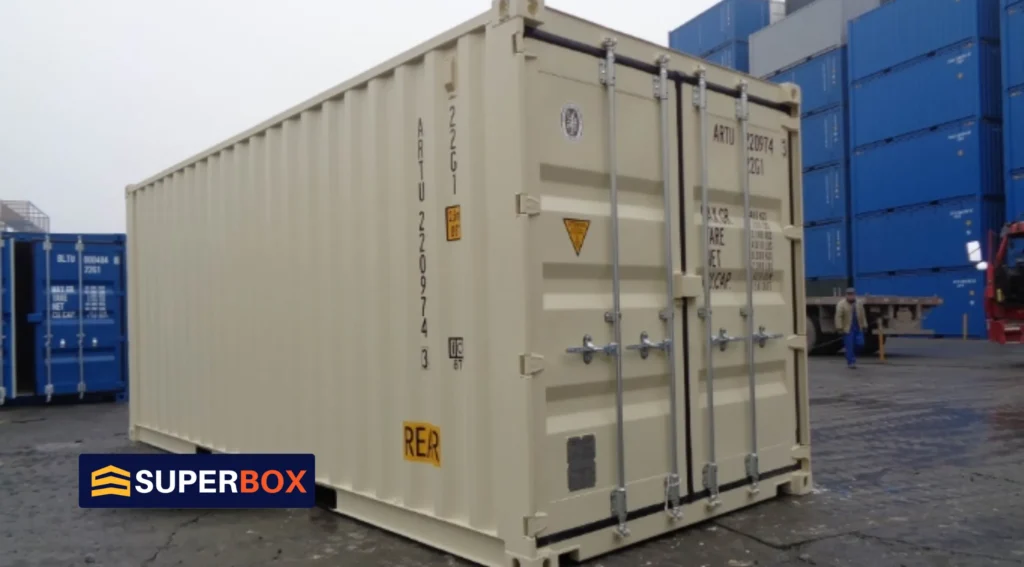
Standard Containers: Versatile and durable, standard containers are the go-to choice for many applications, including storage and shipping. They are designed to withstand the elements and are suitable for most types of cargo.
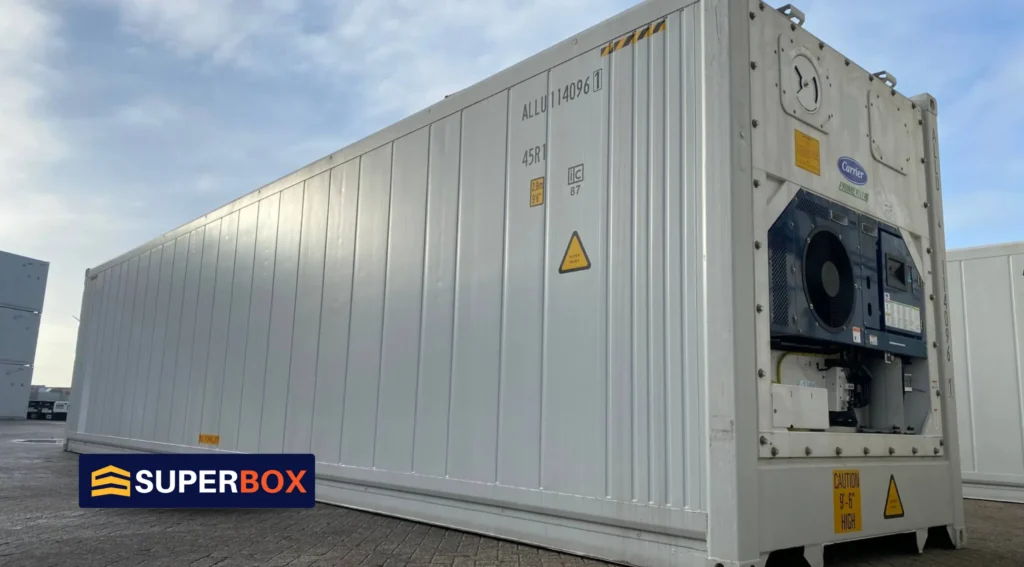
Refrigerated Containers: Reefers are specially designed to transport perishable goods that require temperature control. They are essential for shipping items like food, pharmaceuticals, and other temperature-sensitive products.
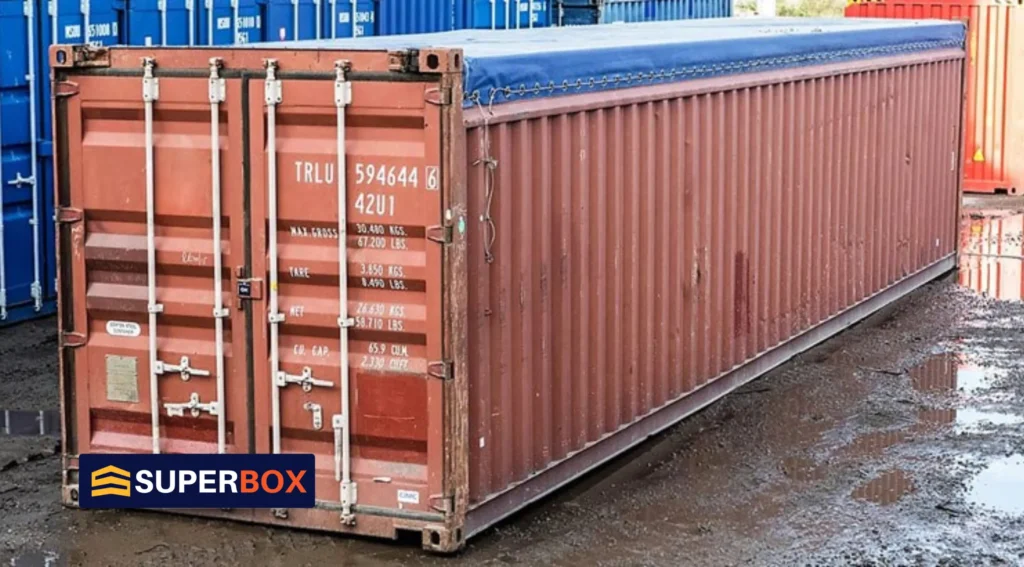
Open-Top Containers: Perfect for transporting tall or oversized items, open-top containers allow for easy loading from above. This makes them ideal for construction materials or machinery that might not fit in a standard container.
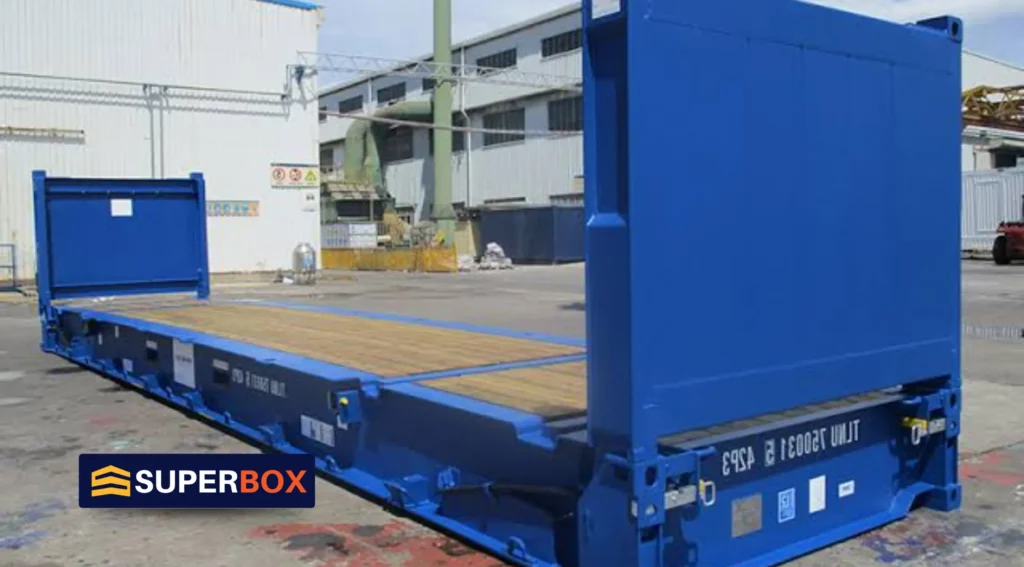
Flat Rack Containers: If you’re dealing with large, heavy, or irregularly shaped items, flat racks provide a cost-effective solution. These containers lack sides and a roof, making them suitable for items that don’t fit into traditional containers.
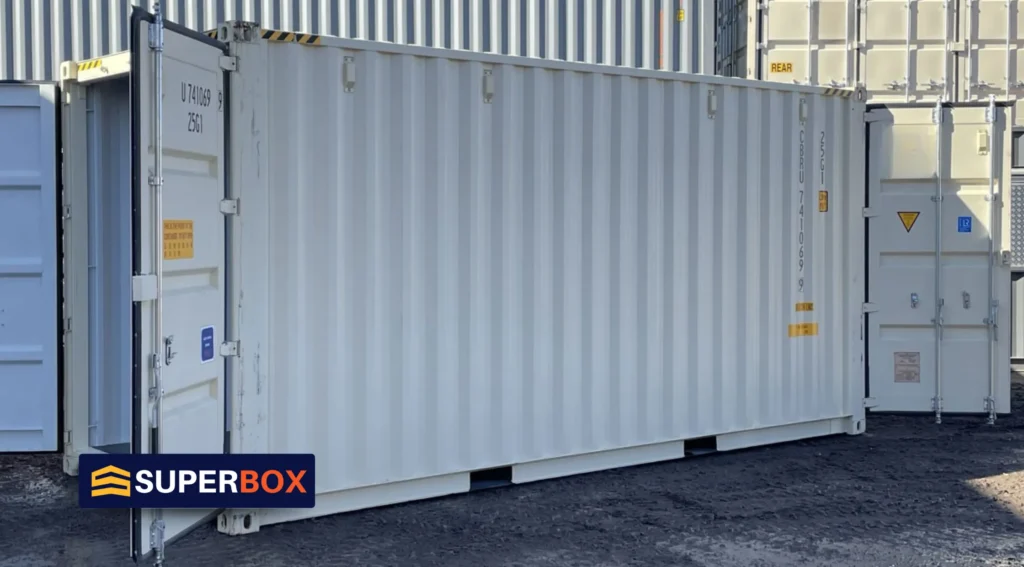
Double Door Containers: For easy access, consider containers with double doors. They simplify the loading and unloading process, making them a good option if you need to frequently access the contents.
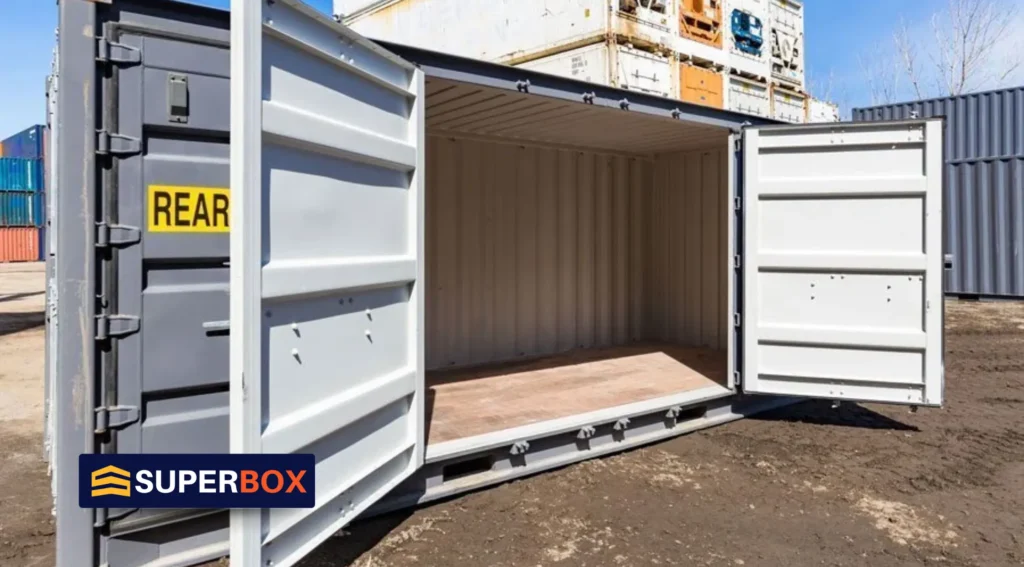
Open Side Containers: These containers allow quick access along the length of the unit, making them ideal for businesses that need to frequently load and unload goods.
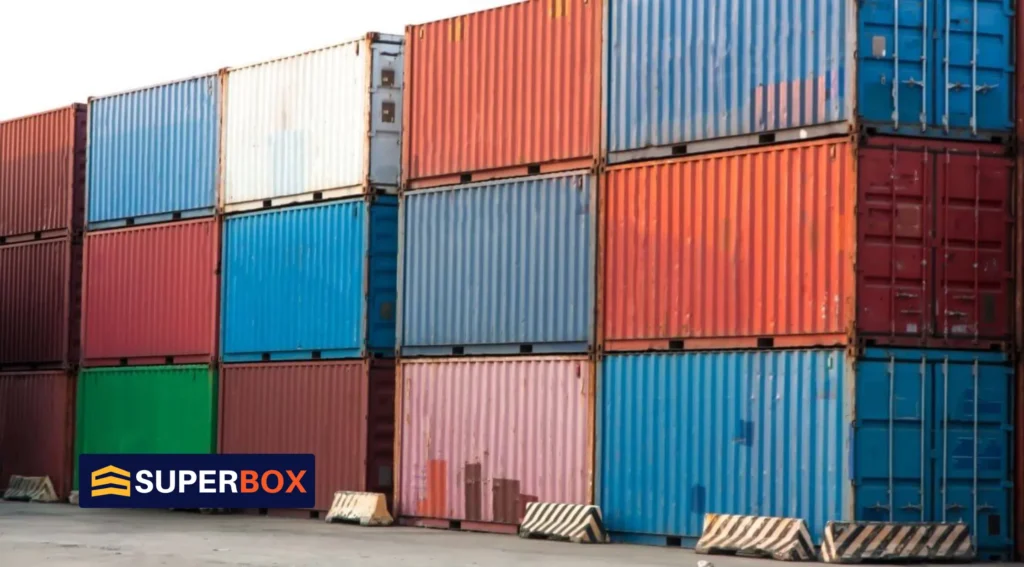
Grades and Conditions of Container
Understanding the grades and conditions of containers is essential in ensuring you select one that meets your needs. Here are some key grades to consider:
New/One-Trip Shipping Containers: These are containers that have been used only once. They are often in near-new condition and ideal for those looking for high-quality options for things like shipping container homes.
Used Shipping Containers: While more budget-friendly, used containers can vary greatly in condition. Inspect them for wear and tear to ensure they meet your needs. Be aware that the longevity of a used container can be affected by its previous usage.
IICL Containers: They are high-quality shipping containers that meet strict standards set by the Institute of International Container Lessors. They are in excellent condition, making them ideal for international shipping. Plus, they look better on the outside than Wind and Watertight (WWT) containers, so they’re a great choice if you want something reliable and visually appealing.
Wind and Watertight: Make sure the container is certified as wind and watertight, especially if you’ll be storing items that are sensitive to moisture or extreme weather. A container that is not wind and watertight can lead to damage to your cargo over time.
Cargo Worthy (CW): A CW container is certified as structurally sound and suitable for shipping. This grade is important if you plan to use the container for international shipping or long-term storage.
CSC Plate: Containers with a CSC (Convention for Safe Containers) plate comply with international safety regulations. This certification is crucial for ensuring the container can withstand the rigors of shipping across various environments.
Budgeting and Financing Your Container
Once you have a clear understanding of your needs, the next step is budgeting. Setting a budget means considering all the costs involved in purchasing a shipping container. This includes the container price, delivery fees, and any modifications you might want to make.
Costs to Consider
When creating your budget, think about both the initial costs and any long-term expenses. If you plan to modify the container—like adding insulation or windows for a shipping container home—be sure to include those costs too.
It can also help to explore financing options. If you’re buying a shipping container, consider loans or leasing plans that can make managing costs easier, especially if you want a high-quality container at competitive prices.
If you’re looking at used containers, pay attention to their condition. Knowing how well a used container has been maintained can affect both the price and how long it will last. A well-cared-for container can give you a good mix of quality and affordability.
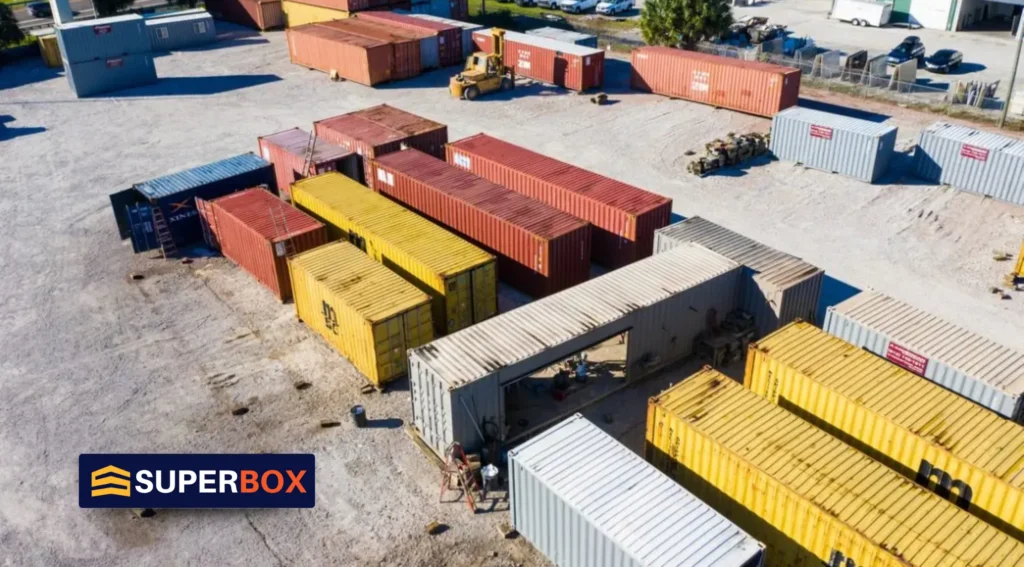
Location Considerations for Your Container
When deciding where to place your shipping container, several important factors come into play:
Accessibility
Accessibility is crucial; ensure that the site allows for easy access for loading and unloading. Consider whether delivery trucks can easily reach the site. If you’re using the container for storage, think about how easy it will be to access it in that location.
Space Requirements
Make sure there’s enough room for the container and any necessary maneuvering. Adequate space around the container is essential for safe operation. For example, think about the turning radius of delivery trucks or any equipment you might need to use when accessing the container.
Local Regulations
Check local zoning laws and any permits needed for placing your container. Regulations can vary widely, so it’s vital to know what’s allowed in your area. In some places, you may need a permit to place a container on your property, especially for long-term use.
Conclusion
Choosing the right shipping container is crucial for storage, shipping, or even creating a container home. To make the best choice, consider your needs, set a budget, and think about where you’ll use it.
Start by understanding your requirements. Are you storing furniture, shipping goods, or building a home? Explore the different types of containers available, like standard, high cube, or refrigerated. Each type has unique benefits, so knowing what you need is key.
Also, consider the structural integrity of the container. A strong, well-maintained container will keep your items safe and last for years.
By following these steps, you’ll be ready to choose a shipping container that meets your expectations, ensuring your items are secure and your space is optimized.
Finding the Perfect Shipping Container with SuperBox!
At SuperBox, we specialize in providing high-quality shipping containers tailored to meet your specific needs. Whether you require a container for storage, shipping, or even to create a unique living space, our extensive selection ensures you’ll find the perfect solution.
We pride ourselves on delivering exceptional customer satisfaction and competitive prices. Our dedicated team is committed to helping you navigate your options, ensuring you make an informed decision that aligns with your goals.
Don’t compromise on quality—choose SuperBox for your shipping container needs. Contact us today at 210-557-006 to explore how we can assist you in finding the right container for your project!

